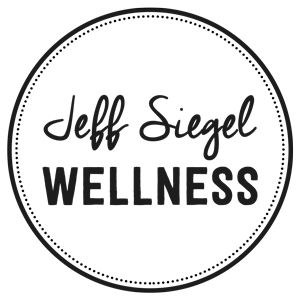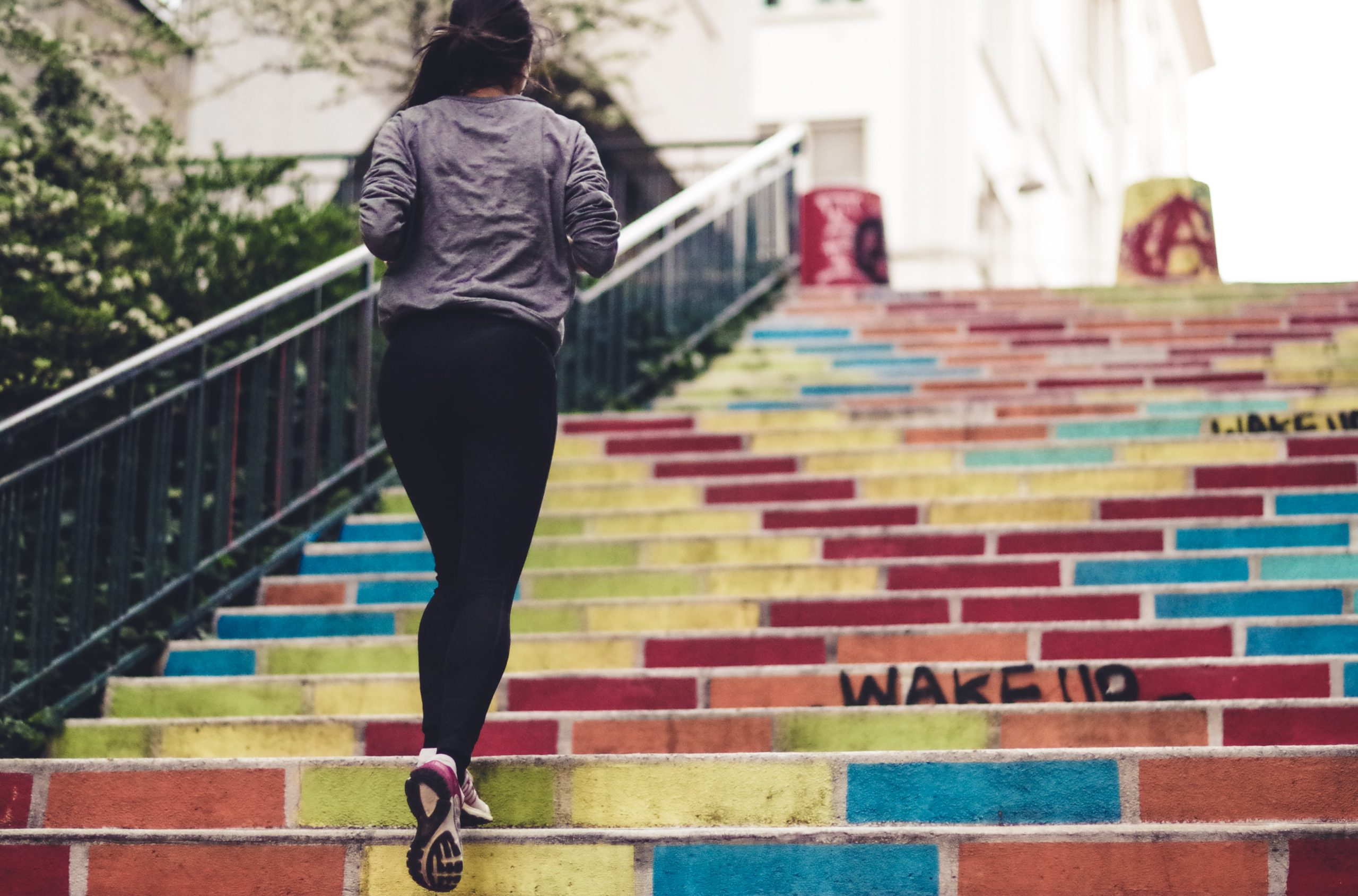Don’t let the momentum of your busy schedule rob you of the opportunity to improve your health. Try this visualization exercise to understand why everyday lifestyle choices affect your physical fitness. And most importantly, what you can do about it.
Here’s how to start.
- If you are in a comfortable and safe environment, sit down and close your eyes.
- Now imagine yourself sitting in this same place exactly one year from now.
- Take a deep breath and let the last 365 days sink in. Imagine all the experiences and new knowledge you’ve gained over the course of a year.
- Now ask yourself, “What I am most afraid will be the same a year from now?”
The Pain of Not Changing Needs to Be Intolerable to Get You To Move
If the idea that things will be the same a year from now scares you, you’re not alone. This fear points directly to the parts of your life you want to be different but feel most helpless to change.
- Maybe you’re afraid you’ll still be unhappy with your body and out of shape.
- Maybe you’re afraid you’ll still be avoiding exercise or drinking too much.
- Maybe you’re afraid you’ll still be eating poorly or going on crazy yo-yo diets.
Perhaps you’ve tried to change your behavior in the past and it didn’t work. It’s easy to feel helpless, stuck, and afraid that you’ll be dealing with the same issues for the rest of your life.
When I have people do this exercise, the piece that is most shocking is that they often imagine themselves facing the same personal problems and challenges as they have today, despite the naive assumption that the future will somehow be better.
The future will be different, but it might not be better. An honest look at the choices you make every day will largely determine this outcome. This realization can sting…a lot.
Thankfully, imagining this pain is a crucial piece of emotional leverage. When the pain of not changing is greater than the fear of changing itself, you can use this ignite the fires of your personal transformation.
Thinking About Your Future Isn’t Enough. You Have to Feel It.
For example, imagine the thing you’re scared you won’t change is your lack of regular exercise. If you put yourself in the perspective of your future self (i.e. you one year from now), you know you’ll be disappointed if you go another year without getting in shape.
You know your body will feel lethargic if you skip another workout. You don’t need another person to remind you that regular exercise is a good idea.
But you don’t feel it in your heart. You aren’t experiencing that disappointment or lethargy in this moment.
Instead, you are only tuned into your present emotional experience — “I’m tired, busy, and don’t feel like it! The truth is that this current emotional experience drives your behavior, regardless of how “future you” will feel about it.
Why?
Because your brain is constantly trying to balance resource intake and expenditure. If it predicts that going to the gym is going to require more physical and emotional resources than you have, it’s going to generate an unpleasant emotional experience.
At the most fundamental level, it’s easier for your body and brain to reenact the past than to feel into a new future. In other words, past experience drives your visceral reaction when you imagine working out. If your past experience is focused on the difficulty rather than the reward, you’re going to feel unmotivated to workout.
As a result, you end up making choices that aren’t aligned with your future goals. Your nervous system is locked in the past. You need to reset it with new emotions derived from a clear vision of what it feels like to have the body and health you want.
Without Clear Goals & Intention, Easy Will Always Win
I’ve seen many people fall into a negative spiral of poor self-care. One missed workout snowballs into long periods without sufficient exercise. One bad day of eating turns into a week of overdoing it. These everyday lifestyle choices affect your physical fitness in the moment and for days to come.
The challenge is that these choices seem innocuous at the time. In reality, they reinforce the same old patterns that got you to where you currently are.
Each time you let easy win, you entrench that past habit a little deeper. Slowly, you become fossilized in a lifestyle that is undermining your health.
As my good friend Pete Kadushin says, “If nothing changes, nothing changes.”
Thankfully there is a way through this mess. But here’s the catch, it’s not easy. In fact, it’s hard, very hard. And for many reasons:
- It’s hard because the world around you pushes you towards sedentary and unhealthy behaviors.
- It’s hard because your nervous system likes familiarity and safety; therefore, it defaults to what you did yesterday because there’s certainty in past experience.
- It’s hard because emotionally you have become habituated to living a certain way and shifting long-standing habits means letting go of the past, mourning that loss, and confronting scary feelings along the way.
- It’s hard because you probably don’t have much support to live a healthy lifestyle, especially if everyone around you isn’t changing the way they eat, move, and take care of themselves.
I wish I could offer you a few easy-to-implement solutions, but there’s no quick fix. Understanding how everyday lifestyle choices affect your physical fitness is the important first step. The next step is to trick your nervous system by imagining a new future, which enables your brain to make new predictions and creates an emotional response that supports your goals rather than thwarts them.
Use Your Powers Of Imagination To Create Your Desired Future
Go back to the visualization of yourself one year from now. Instead of focusing on what you’re afraid of, focus on what you want to be different.
- Close your eyes and imagine yourself one year from now. Take a breath and let the last 365 days settle in. Imagine all the new knowledge and experience you’ve gained.
- Using the example of improving your fitness, envision a future body you want to live in and how it actually feels at the physical level to inhabit this version of yourself.
- Look down at your body and imagine feeling comfortable in your own skin. Notice what it’s like to be satisfied with your health and fitness. Absorb the feeling of having energy. Allow yourself to proud of taking good care of your body.
- Now ask, “Over this last year, what choices did I make that helped me get here? What one behavior had the biggest impact creating the body I’m now living in?”
Answering this question reminds you that you didn’t arrive in your future body by chance. You arrived here by choice. At some point, you decided to do things differently.
Change Requires Equal Parts Letting Go and Leaning In
Letting go of who you thought you were takes courage and energy. Yet this is a necessary step to make space for who you want to become. You may need someone to help you untether yourself from your old identity. You will need sufficient cognitive and emotional resources to examine and let go of your old choices.
This is why so many people fail to stick with their new habits — they haven’t done the inner work necessary to make the outer changes take root. They try to willpower their way through the process and push harder until something budges. If you’ve ever had to muster up all your resources every day to stick with a new habit, you know this is exhausting.
The key is to do this process once. Clear a space inside yourself for a new version of you to arise and then commit to your new way of living. Don’t rely on willpower to make the healthy choice in the moment. Rely on your skills of forethought and planning to make the best choice the easy choice.
The Opportunity Cost of One Day
Once you’ve mourned letting go of your old self and make the choice to live differently, you need to engineer your environment to support that choice.
The “One Year From Now” exercise allows you to see how everyday lifestyle choices affect your physical fitness because it makes the vague and ambiguous future finite.
You only have 365 days to produce the change you want. 365 opportunities to steer your life in a new direction or continue down the path that lands you in the same place with the same problems.
From this perspective, you can see the opportunity cost of punting the healthy option to tomorrow. It is one less chance for you to grow. It is one less chance for you to evolve into the person you want to become.
Consider how these everyday lifestyle choices affect your physical fitness within the context of one year:
- If you eat at home Monday through Friday,
that is only 260 dinners in total that can make or break your diet.
- If you try to get 7-8 hours of sleep at least
four nights a week, that is only 208 nights to wake up rejuvenated.
- If you workout three times a week, that is only 156 workouts to elicit change.
156 is still a lot, but it is concrete. It makes every single day matter.
Every time you skip a workout, the probability of becoming the desired version of your future self decreases. Your odds get worse and the remaining game gets harder.
Define How Everyday Lifestyle Factors Affect Your Physical Fitness
From this perspective looking backwards you can see that you have a finite number of days to behave differently or else you will arrive in the same place one year from now. This creates an immediate pain point that reminds you how important everyday lifestyle choices actually are.
When you couple this immediate opportunity cost with the pull of living up to your potential, you create a recipe for real transformation to occur.
Working with a coach can help you start from where you want to end up (i.e. your desired future self). It’s then easy to work backwards, month to month, week to week, day to day, to identify the high-leverage action steps that will make your dream a reality.
If you don’t want to end up with the same problems, complaining about the same issues, then it’s time to master these everyday lifestyle choices that affect your physical fitness.
Do them not because they’re easy, but because they’re worthwhile. Do them because your future-self knows you’re capable of more. Do them because changing your everyday lifestyle habits sets a precedent for others to do the same.
Wishing for better problems to have one year from now,
~ Jeff Siegel
I’m Jeff Siegel, a wellness coach and mindfulness teacher, helping people upgrade their habits and improve their health. For free bi-monthly wisdom on how to eat, move, and be healthier, sign-up for my newsletter. If you’d like to explore working together, you can schedule a private 30-min consultation call with me.




2 Comments